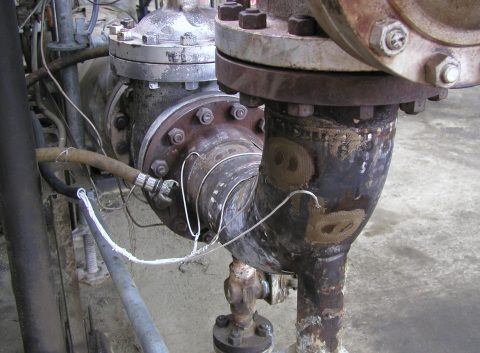Thermally Conductive Adhesives from Aremco
May 1, 2022
Adhesives with high thermal conductivity are known as thermally conductive adhesives, and are frequently used to dissipate heat from power electronics. These adhesives are synthetic resins or inorganic binders which are augmented with metallic or ceramic filler materials. The best thermal conduction coefficients are achieved using metallic fillers such as silver or nickel. However, these […]
Adhesives with high thermal conductivity are known as thermally conductive adhesives, and are frequently used to dissipate heat from power electronics. These adhesives are synthetic resins or inorganic binders which are augmented with metallic or ceramic filler materials.
The best thermal conduction coefficients are achieved using metallic fillers such as silver or nickel. However, these fillers are electrically conductive, which may not be appropriate for some applications. For electrical insulation and thermal conductivity to co-exist, adhesives modified with ceramic-based fillers are the best suited.
Benefits of Thermally Conductive Adhesives
Standard filled adhesives maintain thermal conductivity measurements spanning between 0.4-0.55W/m.K, with unfilled adhesives achieving less. Specially developed thermally conductive epoxies are able to achieve thermal conductivity of between 1.5 and 3 W/m.K.
Thermally conductive adhesives have high strength performance and are able to adhere to a range of substrate materials. These adhesives are also resistant to chemicals, humidity and water and have a low level of outgassing, which minimizes the risk of damage to sensitive circuitry.
Also, thermally conductive adhesives are resistant to high temperatures and are able to manage with differential expansion and contraction rates across dissimilar substrate materials. One main benefit is their non-corrosive formulation and their resistance to thermal shock, vibration and impact.
Applications of Thermally Conductive Adhesives
Manufacturers routinely use thermally conductive adhesives as encapsulation compounds for the temperature sensors in enclosures or reactors. Generally speaking, TCAs are used in applications which require good levels of heat transfer between component parts such as in heating and cooling units and for tooling or mechanical parts.
Thermally conductive adhesives are also frequently used in the electronics industry, specifically for bonding surface mount devices to printed circuit boards and for bonding heat sinks, as their heat conductivity minimizes thermal strain which prevents performance loss or failure of electronic components.
Additionally, thermally conductive adhesives are suited to potting and encapsulating parts such as printed circuit boards, transformers and coils. They are also frequently used in electric motors, lighting, LED heat transfer management and batteries.
Considerations When Selecting a Thermally Conductive Adhesive
When selecting an adhesive, it is important to consider the materials that are being bonded as well as their size and design. The epoxy’s cure schedule must also be considered as well as its mechanical strength.
At Aremco, we are at the forefront of high performance, thermally conductive adhesive formulation. We solve difficult technical problems and produce high quality materials with outstanding service and support. If you would like to find out more about our thermally conductive adhesives, contact us today for more information.
Download Specs Request Quote


 +1 (845) 268 0039
+1 (845) 268 0039
